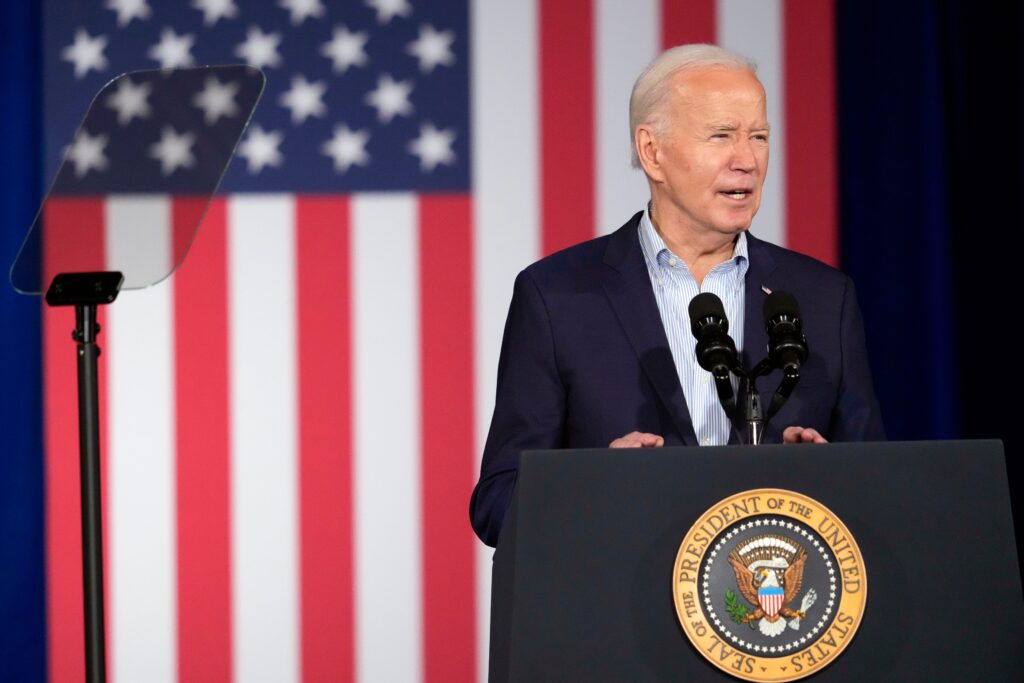- President Biden’s 2020 victory was powered by strong support from young and minority voters.
- But he continues to lag with these groups ahead of November, per a new WSJ poll of the swing states.
- Biden’s challenge comes as he works to promote his administration’s economic record on the campaign trail.
In 2020, President Joe Biden’s victory was buoyed by strong support among Black and Latino voters, as well as young voters.
It was this concentration of support in key swing states including Arizona, Georgia, Michigan, Nevada, Pennsylvania, and Wisconsin that gave Biden the edge that year.
But in a new Wall Street Journal survey of the seven swing states, Biden continues to struggle to recreate the 2020 electoral coalition that paved his way to the White House.
Former President Donald Trump leads Biden in all of the above mentioned states, plus North Carolina. Of the swing states in the WSJ survey, Biden leads only in Wisconsin.
Biden's support is weighed down by his weaker numbers among voters who heavily favored him four years ago.
In 2020, Black voters favored Biden over Trump 92% to 8%, according to a Pew Research Center analysis. But in the most recent Wall Street Journal survey, Biden's support among Black voters sat at 68%.
Biden won Latino voters 59% to 38% in 2020, according to Pew. But the Journal's most recent survey showed Biden with 48% support among Latino voters in the swing states.
The new survey showed Biden registering 50% support among swing-state young voters, who have been especially vocal in their disapproval of the president's handling of the Israel-Hamas war.
In 2020, young voters, generally comprised of Americans aged 18-29, backed Biden over Trump 59% to 35%, according to Pew.
The survey comes as both Biden and Trump have ramped up their campaign schedules ahead of what is likely to be a tight election, with Biden aiming to tout economic progress made under his administration while Trump is seeking to portray himself as a better steward of issues like the economy and immigration.
With the election being seven months away, the polling narratives for both candidates could easily change.
But with most base conservatives firmly behind Trump, Biden's challenge is unique in that he'll need to generate more enthusiasm among voters who may already be inclined to vote for him and could potentially vote for a third-party candidate or sit out the election over a key issue like the conflict in Gaza.
The Democratic strategist James Carville, who was one of the architects of Bill Clinton's 1992 presidential victory, recently told MSNBC that Biden can win in November but warned that the president won't be able to reassemble his 2020 alliance this time around.
In making his argument, Carville pointed to the Democratic Party's weakened position among Black and Latino men as a troubling sign for the party.
"I do think that the polling has gotten a little bit better," Carville said of the president's standing after last month's State of the Union address. "But we're not going to replicate the 2020 coalition."
